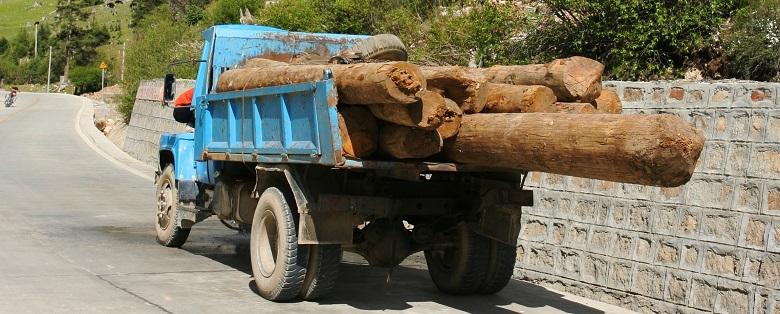
Overweight trucks on the highways pose a threat to all drivers. The chance of big rig accidents increases exponentially as trucks exceed the legal weight limit. Unfortunately, there are many things that motivate drivers to operate their vehicles overloaded, even when the risk of big rig wrecks increases. Despite these factors, it is essential that commercial carriers understand the hazards that overweight tractor trailers present to all drivers and be compliant in maintaining legal weight limits.
Overloaded Trucks And Truck Crashes
According to the most recent crash statistics report released by the National Highway Traffic Safety Administration (NHTSA), there are nearly 4,000 fatalities every year as a result of big rig accidents.1 Among these statistics, some events are due to overloaded trucks that cause a number of road and handling hazards. Big rig wrecks that involve brake failure, loss of vehicle control, and even rollovers are more likely to happen when trucks are loaded beyond their legal capacity.2
Overweight Loads Create Many Hazards
Commercial tractor trailers are huge, heavy vehicles that demand expert skill for proper operation; these trucks are designed to carry no more than 80,000 pounds in each trailer. Much of the necessary driving skill involves understanding how to properly load the truck and handle the load when traveling at highway speeds. When trucks are overloaded, big rig accidents can occur for a number of reasons:
- Loss of Vehicle Control - Tractor trailers that are loaded with more weight than the truck is designed to carry can be difficult to drive. The force of added weight makes it more challenging to negotiate curves, slow or stop the truck, or move up and down hills. It creates countless ways for drivers to lose control of the vehicles, whether a result of gravity, wind acting on the trailer, mechanical failure, or even interaction with passenger vehicles. The heavier the truck, the harder it is to maneuver, creating unsafe conditions.
- Tire or Brake Failure - At the top of the list of mechanical failures that may contribute to big rig wrecks involving overloaded trucks are tire and brake failure. Overloaded commercial truck tires that are pushed beyond their useful limits make blowouts more common. Brake failure is a chief component in many of the crashes involving overloaded 18-wheelers that were more difficult to stop.
- Loss of Balance And Rollovers- Rollovers happen when a truck’s load becomes unbalanced and tips over the vehicle. It is hard enough to prevent this from occurring with a legally loaded trailer, The chance of a rollover increases significantly when drivers are unable to compensate for the additional balance shifts their trucks may encounter if the load is overweight.
- Increased Roadway Damage - In addition to issues with the truck itself, overloading causes increased wear and tear to the roads used by these big trucks. Highways are designed to withstand regular use from vehicles up to certain weights. Road damage increases when many overweight tractor trailers drive over them, adding to the number of traffic accidents and increased road maintenance costs.
Overloading is a practice that does not save money; it actually increases costs for commercial carrier companies and everyone else. Between damage to the highways and an increased incidence of big rig accidents, overloading big rigs must be avoided. In an effort to increase truck safety, trucking companies need to do their part in reducing deadly big rig wrecks and insist that all drivers adhere to federal weight regulations and avoid overloaded trailers!
Hildebrand & Wilson, Attorneys at Law
7930 Broadway, Suite 122
Pearland TX 77581
1U.S. Dept of Transportation, NHTSA Traffic Safety Facts: 2014 Motor Vehicle Crashes: Overview, March 2016
2Association For The Advancement of Automotive Medicine, Analysis of Large Truck Rollover Crashes, 2008





